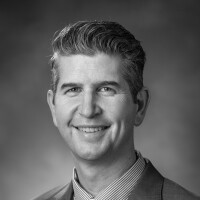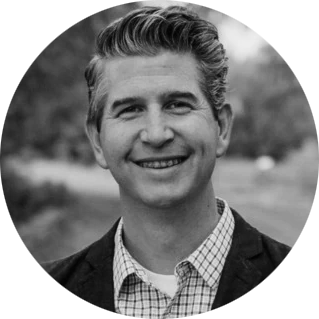The LDS Priesthood Ban in Early Church History
Now, I would just say, for those of you with the older edition of the scriptures, the 1981 edition of the Triple Combination, you won’t get this heading that Tony’s about to read. Yeah, I think in 2013 is when they – It’s in the 2013 print edition or you can find it online.
So, listen to how good this is. The Book of Mormon teaches that all are alike unto God, and I think it’s important that we know that this is our Book of Mormon doctrine, all are alike unto God, black and white, bond and free, male and female, 2 Nephi 26.33. Throughout the history of the Church, people of every race and ethnicity in many countries have been baptized and have lived as faithful members of the Church.
During Joseph Smith’s lifetime, a few black male members of the Church were ordained to the priesthood, as we’ve talked about a few of those. Early in its history, there was the Mormon priesthood ban where Church leaders stopped conferring the priesthood on black males of African descent. Church records offer no clear insights into the origins of this practice. So, we’ve kind of covered that up to that point. Church leaders believed that a revelation from God was needed to alter this practice and prayerfully sought guidance.
The revelation came to Church President Spencer W. Kimball and was affirmed to other Church leaders in the Salt Lake Temple on June 1, 1978. The revelation removed all restrictions with regard to race that once applied to the priesthood. There’s just some packed lines in there, too. By the way, just offhand, if you read that Edward Kimball article, you’ll read that as President Kimball was wrestling with this question, one of his counselors said to him, President, it doesn’t appear that there was a revelation that implemented the restriction.
I don’t think we need a revelation to remove it. I think we can just make a unanimous decision. And President Kimball said, this is such an important question, I want a revelation from the Lord on the subject.
And he had even tasked many of the members of the First Presidency, Quorum of the Twelve, the year before in 1977, to go and search the scriptures and search any previous revelations they could find to see if there was any reason why this restriction should remain in place. And it’s fascinating as those reports come back and people like Elder McConkie saying, I can’t find any scriptural foundation reason for why you can’t open up the Mormon priesthood ban for all of God’s children.
And it seems from Edward Kimball’s research, anyway, that Bruce R. McConkie’s essay, that homework that President Kimball gave him, it was Bruce R. McConkie’s essay that was perhaps the most convincing that this was the right path to follow, that this could be – it was time to remove this.
So I love when I’m personally working through struggles or trying to get answers from me or my family or my church calling or my students, whatever the setting may be, I love seeing the pattern here of what President Kimball did. You’ll notice this wasn’t a, hmm, one day I think this is a good idea, go and take it to the First Presidency, Quorum of the Twelve and say, let’s do this, let’s pray about it, let’s be done. This has been going on for years. Not just him, but previous prophets have been wrestling with this.
Listen to this quote from President Kimball, after everybody had gone out of the temple.
I knelt and prayed. I prayed with much fervency. I knew that something was before us that was extremely important to many of the children of God. I knew that we could receive the revelations of the Lord only by being worthy and ready for them and ready to accept them and put them into place. Did you catch that? That sometimes God’s willing to give you a revelation decades before they actually come, but it might be because you weren’t ready to receive it or maybe ready to receive it but not ready to implement it, not ready to put it into place.
There’s a reason why the Lord gave Joseph Smith some things in 1830 but not others.
Gave him some things in 1835 or 1842 when he was ready, when the Church was ready, when they could be implemented. Regarding Blacks in Mormonism and many other topics as well.
Now listen to this next line. Day after day I went alone and with great solemnity and seriousness in the upper rooms of the temple, and there I said, Lord, I want only what is right. We want only the thing that thou dost want, and we want it when you want it, and not until. I don’t know about you, but that that is a beautiful pattern for seeking revelation for our lives, and that’s the pattern that his prophets are using for the Church.
And so, sometimes if you get this idea or this sentiment that, man, why isn’t the Church doing more for this group or for that group, or why are we moving quicker in this direction? You’ve got to trust that God’s prophets are pleading with heaven to find out what heaven wants them to do, when heaven wants them to do it, and perhaps, just perhaps, some of the delay might not be because they’re not asking or because they’re not worthy of getting the answer.
Perhaps sometimes delay might be because we collectively haven’t changed our heart and turned our lives to the Lord in such a way that we’re ready collectively to receive some of the revelations that are coming.
Well, with that, I think President Kimball, in Official Declaration 2, he lists two reasons why this revelation came. One of them is what Brother Griffin just mentioned, witnessing the faithfulness of those from whom the priesthood has been withheld. Like, that is a key. He sees the faithfulness of those from who have been withheld. And then his second one is aware of promises made by prophets and presidents of the Church who have preceded us, that at some time in God’s eternal plan, all our brethren who are worthy may receive the priesthood.
And so, he also is calling and hearkening to promises made from in scripture and prophets that the global expansion of the Church needs to move forward regarding Mormons and Blacks.

By Dr. Anthony Sweat, Source Expert
Dr. Anthony Sweat serves as a leading authority on the topic of “Mormonism Explained” He holds a BFA in painting and drawing from the University of Utah and achieved his MEd and PhD in curriculum and instruction at Utah State University. Before assuming his role in the religion faculty at BYU, he accumulated thirteen years of experience working with Seminaries and Institutes of Religion. Dr. Sweat is a prolific author with numerous publications centered on the teachings of the Church of Jesus Christ of Latter-day Saints. His research primarily investigates the factors influencing effective religious education. Anthony and his spouse, Cindy, are proud parents to seven children and make Springville, Utah, their home.

Fact Checked by Mr. Kevin Prince, Source Expert
Kevin Prince is a religious scholar and host of the Gospel Learning Youtube channel. His channel has garnered over 41,000 subscribers and accumulated over 4.5 million views. Mr. Prince also created the Gospel Learning App, a reliable platform where individuals seeking truth can access trustworthy answers to religious questions from top educators worldwide.
About Mormonism Explained
Mormonism Explained is a resource that was designed to provide objective and factual information about Mormonism, its history, doctrines, and policies. Our team of researchers consults experts and primary sources to present factual information on a variety of topics relevant to the Mormon Church.
Tags

